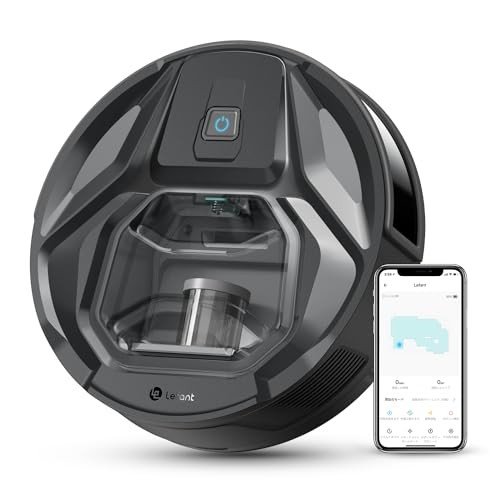Robotic Vacuum Cleaner Comparison: The Future of Home Cleaning
In the last few years, robotic vacuum have transformed the method we preserve tidiness in our homes. With advancements in innovation and the incorporation of synthetic intelligence, these devices have evolved from mere novelty products to vital household appliances. Full Statement supplies a detailed comparison of some of the leading robotic vacuum cleaners on the market, helping customers make notified decisions when selecting a model that suits their needs.
Comprehending Robotic Vacuum Cleaners
Robotic vacuum are autonomous machines developed to tidy floorings automatically. Geared up with sensors, they navigate around barriers and adjust their cleaning paths for maximum performance. The crucial features that distinguish different designs consist of suction power, battery life, app connection, navigation technology, and price.
Key Features to Consider
When comparing robotic vacuum, potential purchasers need to take into consideration the following factors:
- Suction Power: Measured in Pascals (Pa), suction power determines the effectiveness of getting dirt and debris.
- Battery Life: The length of time a vacuum can run before requiring a recharge significantly impacts its cleaning performance.
- Navigation Technology: Models might utilize simple random navigation or sophisticated mapping innovations (like LIDAR) that permit them to develop a map of the home.
- Smart Features: Connectivity to smart device apps or smart home systems can boost functionality and control.
- Filter Type: HEPA filters are suggested for allergy patients, as they trap irritants and improve air quality.
Comparison of Top Robotic Vacuum Cleaners
Below is a comparison table of a few of the best robotic vacuum cleaners offered in 2023:
| Model | Suction Power (Pa) | Battery Life (min) | Navigation Technology | Smart Features | Price (GBP) |
|---|---|---|---|---|---|
| iRobot Roomba i7+ | 1700 | 75 | Smart mapping | App control, voice command | ₤ 949 |
| Roborock S7 | 2500 | 180 | LIDAR | App control, multi-floor | ₤ 649 |
| Neato D7 | 2000 | 120 | LIDAR | App control, zone cleaning | ₤ 599 |
| Ecovacs Deebot T10 | 3000 | 150 | Smart mapping | App control, room detection | ₤ 799 |
| Shark IQ Robot | 1200 | 90 | Random | App control, self-emptying | ₤ 399 |
Explanation of the Table
- iRobot Roomba i7+: Known for its robust cleaning ability, it includes smart mapping technology that allows it to designate particular areas for cleaning. Its self-emptying function is a plus for benefit.
- Roborock S7: This design stands out in suction power and battery life, making it ideal for larger homes. Its LIDAR technology helps produce an efficient cleaning course, and it can vacuum and mop simultaneously.
- Neato D7: The D-shape style enables much better corner cleaning, and it includes strong suction power. Its LIDAR navigation allows it to map out cleaning areas precisely.
- Ecovacs Deebot T10: Boasting the highest suction power and advanced navigation, this design can deal with multiple floors efficiently. It's a versatile option for families with varying floor types.
- Shark IQ Robot: A budget-friendly choice that still uses smart features. Its self-emptying ability and app integration make it a practical option for those searching for a solid cleaning companion without breaking the bank.
Benefits of Robotic Vacuum Cleaners
Robotic vacuum offer many benefits that contribute to their rising appeal among consumers:
- Time-Saving: Automated cleaning permits users to maximize valuable time that can be invested in other activities.
- Convenience: Many designs can be arranged via apps to clean at particular times, decreasing manual effort.
- Availability: They can reach under furnishings and in tight spaces where standard vacuums may have a hard time.
- Daily Maintenance: Regular usage of robotic vacuums can assist preserve a regularly clean environment, promoting better total home hygiene.
Frequently Asked Questions About Robotic Vacuum Cleaners
1. How typically should I run my robotic vacuum?
It is advised to run the robotic vacuum a minimum of 2-3 times a week to keep cleanliness, though daily use can be helpful, particularly in homes with pets or high foot traffic.
2. Do robotic vacuums deal with carpets?
Yes, numerous robotic vacuums are designed to deal with carpets, however efficiency might vary based upon the design's suction power and brush type. Try to find models specifically pointed out as reliable for carpets.
3. Can robotic vacuums clean family pet hair?
Most robotic vacuums can effectively get pet hair, however those with strong suction and tangle-free brush styles are especially well-suited for this job.
4. How do I maintain my robotic vacuum?
Routine upkeep includes cleaning the brushes and sensing units, emptying the dustbin, and sometimes changing filters to ensure optimum efficiency.
5. Are robotic vacuums worth the financial investment?
While they tend to be more pricey than standard vacuums, the convenience, performance, and time-saving elements make them a worthy financial investment for numerous households.
The market for robotic vacuum cleaners continues to expand as innovation evolves, providing customers a variety of choices to suit various cleaning requirements and budget plans. By thoroughly considering functions such as suction power, battery life, and smart capabilities, users can select a model that lines up with their way of life. Whether for convenience, ease of usage, or superior cleaning performance, robotic vacuums are unquestionably improving the future of home cleaning.

